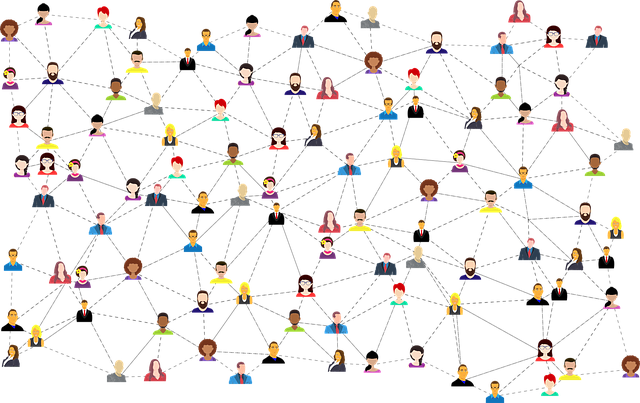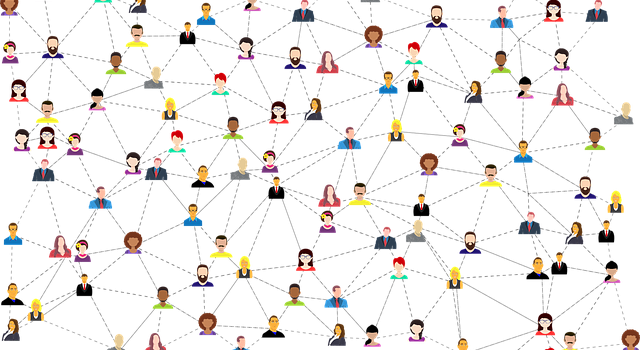ICT and development intersect in many ways and do so increasingly as both technology and development work evolve. This series of articles sheds a light on one aspect of “Development in the digital world”, or development in a digitalized context: (mis)representations of development and the role of mechanisms behind social media platforms in them. Are social media logics pushing to harmful practices? Are social media users benefiting from poverty porn? Can social media be used to counter these practices? The series of article reflects on these questions through four different case studies.
Celebrities’ work in charities is not new, but their involvement in charities has become more and more popular in the global north starting from the 1990s1. So-called “celebrity philanthropy”, already strongly present in the traditional media, has been transposed it the 21st century to social media. In new media, the active role of celebrities as ambassadors for charities is emphasized even more than previously, as they have a more active role throughout the campaign and beyond interacting with the audience. Their work is also more personal than on traditional media, as celebrities not only work as faces of campaigns but also share their story on their personal accounts thanks to the interactive and user-generated nature of social media.
The change in celebrity philanthropy is nevertheless not only cosmetic in the way it manifests itself through social media. The technological basis of platforms plays a big role in how social media is used. Built on the principles of the attention economy, the platform ultimately pushes its users to compete for the scarcely available attention, which in turn is commodified as data by the company2. This results in a competition between users for the biggest influence. Influence can be measured in different ways using the available data on social media platforms (such as the number of followers, which indicates the extent of an individual’s outreach), or through a user’s social role (such as an individual considered an expert or otherwise trust-worthy)3. Social media celebrities present the best of both worlds: a large following and a central position in social media networks, combined with the credibility from their position in society.
From this perspective, using celebrities or other social media influencers is understandably very appealing for development organizations’ campaign in the age of social media, as it results in more visibility and influence of the organization on a platform. In other words, based on the networked structure of social media platforms, campaigns with celebrities give development organizations access to brokers or key users in the network that connect them to a larger audience than they could reach by themselves. Due to the flat, networked structure of social media, the use of celebrities’ networks also allows a flow of information further in the network as the audience interacts with the content and shares it forward4.

Image: GDJ through Pixabay
Strategically, the use of influencers and celebrities to reach audiences on social media is a smart way to exploit the structure of social media. One problem: celebrity philanthropy is not ethically harmless. The white savior complex has for a long time been presented in popular culture, for instance in cinema, and social media content by celebrities is often only a continuation of this showcase of the greatness of Westerners5. The power position of celebrities becomes quickly problematic when looking at celebrity philanthropy from the perspective of its impact on perceptions of development. The position of a white, rich, and powerful celebrity contrasts with the vulnerability of development beneficiaries already by default, but the common framing and representations only reinforce this power dynamic by leaning on colonially based and disempowering representations of “development”.
These types of practices point out different risks of social media: as anyone can publish anything, people with good intentions but unknowledgeable of (or willing to close their eyes to) the possible harms of their actions can end up reinforcing harmful practices, which affects the perceptions of the field of development by the general audience and contributes to reinforcing inequalities through tokenization. Additionally, as commercially based platforms inciting competition for attention, social media platforms and their underlying logics push development organizations to practices conflicting with their mission and create new dilemmas of representations. Popular representations of celebrity philanthropy still remain problematic today, even forty years after Lissner presented the term “poverty porn” and the problems around it. In this sense, representations of development on social media by influencers are just a new form of poverty porn adapted to today’s society, technology, and economic grounds. In order to change these, it is important to raise more awareness in the general audience in the problems related to the colonial heritage of development and the white savior complex, and to hold all actors – be that social media influencers or development organizations – accountable for their actions to disrupt the field and turn the marketing practices of development work to benefiting first and foremost reaching a more equal world, even to the detriment of publicity.
The unacceptable practices related to celebrity philanthropy on social media have been increasingly addressed in the last years in both on traditional media by news organizations such as Reuters, The Guardian or QZ, and by social media activists such as No White Saviours. These efforts have to be continued and amplified until the starting point of development work as a way to build a more equal world is self-evident. For instance, when googling “charity work Gerard Butler”, the results are almost exclusively appraisals of his goodwill and work for a number of organizations, while the image search results in almost exclusively problematic representations of development. Only when society as a whole will hold “philanthropists” such as Butler and the organizations they are sponsoring accountable for their actions and demand putting human value before egocentric marketing, will we truly be able to start talking about the possibilities of social media to support development.
Celebrity philanthropy in its current form is not a functioning way to promote development work. While denouncing the problems related to it is one step forward, development organisations still need to gain more visibility and be present on social media to sustain themselves. Do you have ideas or examples of better ways for development organisations to gain a more central role on social media networks without compromising their mission?
Notes:
1 Jeffreys, E., & Allatson, P. (2015). Celebrity philanthropy. Bristol: Intellect Books Ltd.
2 boyd, D. (2010). Social network sites as networked publics: Affordances, dynamics, and implications. In A networked self, 47-66. London: Routledge.
3 Bakshy, E., Hofman, J. M., Mason, W. A., & Watts, D. J. (2011). Everyone’s an influencer: Quantifying influence on Twitter. In Proceedings of the fourth ACM international conference on Web search and data mining (WSDM ’11), 65–74. New York, NY: Association for Computing Machinery.
4 Bennett, L. (2014). ‘If we stick together we can do anything’: Lady Gaga fandom, philanthropy and activism through social media. Celebrity Studies, 5(1-2), 138-152.
5 Bell, K. M. (2013). Raising Africa?: Celebrity and the rhetoric of the white saviour. Portal : Journal of Multidisciplinary International Studies, 10(1).


